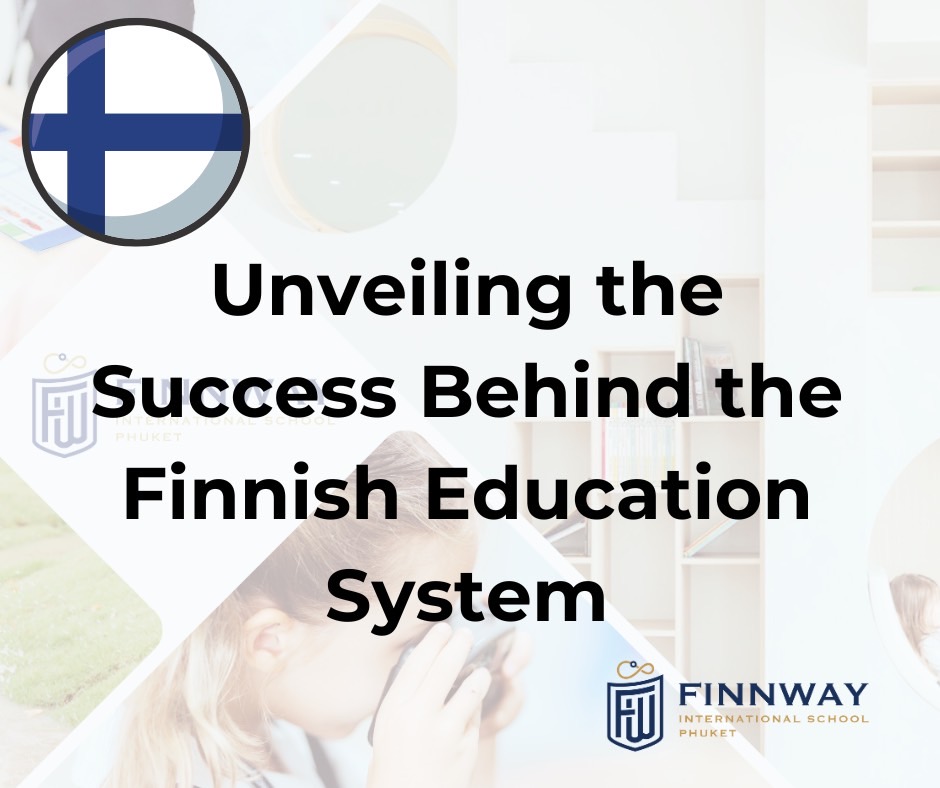The Success Behind the Finnish Education System:
A Model of Excellence
When it comes to education, Finland consistently tops the charts as one of the best-performing nations in the world. The Finnish education system is often heralded for its remarkable success and innovative practices. With its student-centered approach, minimal testing, and emphasis on teacher professionalism, Finland has become a global benchmark for educational excellence. In this blog, we delve into the key factors that make the Finnish education system stand out and explore why it is hailed as the best in the world.
Equity and Equality: Everyone’s Right to Quality Education
One of the cornerstones of the Finnish education system is its commitment to equity and equality. Finland provides equal opportunities for all students, irrespective of their socioeconomic backgrounds. There are no tuition fees for students in primary and secondary education, and every child, regardless of their family’s income, has access to high-quality education. This focus on equal access helps level the playing field and reduces educational disparities, contributing to the overall success of the system.
Highly-Qualified and Respected Teachers
In Finland, becoming a teacher is a highly esteemed profession. Teachers are required to hold a master’s degree and undergo rigorous training, emphasizing pedagogical skills, teaching methods, and child psychology. This approach ensures that teachers are well-prepared to create engaging and effective learning environments. The autonomy given to teachers also enables them to tailor their teaching methods to suit the needs of their students, fostering a sense of ownership and dedication to their craft.
Student-Centered Learning: Less Testing, More Focus on Mastery
Unlike many other education systems, the Finnish approach places a strong emphasis on student well-being and holistic development. The curriculum is designed to be flexible, allowing teachers to adapt to the learning needs and interests of their students. Rather than relying heavily on standardized testing, assessments are conducted less frequently, and the focus is on mastery of concepts rather than rote memorization. This approach nurtures critical thinking, creativity, and problem-solving skills, which are crucial for success in the modern world.
Play and Recess: The Importance of Breaks
Finnish schools value the importance of play and recess in a child’s development. Students have frequent breaks during the school day, and recess is seen as an integral part of the learning experience. These breaks provide students with opportunities to socialize, engage in physical activity, and recharge their minds. Research suggests that these breaks contribute to improved concentration, better cognitive function, and overall well-being, which in turn positively impact learning outcomes.
Supportive Education Policies
Finland’s education policies are carefully crafted to promote success at every level. Early childhood education is emphasized, with a focus on fostering social skills, emotional intelligence, and a love for learning from a young age. Additionally, special education services are integrated into mainstream classrooms, ensuring that students with varying needs receive appropriate support. This inclusive approach not only benefits students with disabilities but also enriches the learning environment for all.
The Finnish education system’s success is a result of a holistic and student-centered approach that values equity, teacher professionalism, and well-being. By focusing on equal access, high-quality teacher training, student-centered learning, play, and supportive policies, Finland has established a model of education that promotes excellence and equity simultaneously. While adapting the entire Finnish system to other contexts might be challenging, there are valuable lessons that educators and policymakers worldwide can learn from this Nordic success story. Ultimately, the Finnish education system reminds us that prioritizing the well-being and growth of students, as well as respecting and empowering educators, can lead to remarkable educational outcomes.

